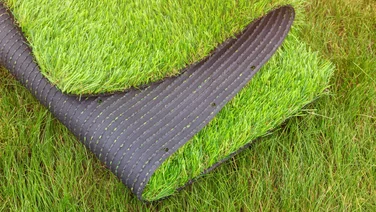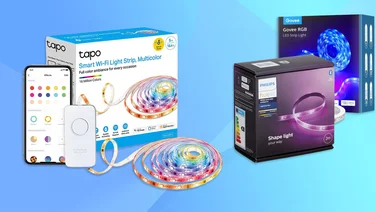To help us provide you with free impartial advice, we may earn a commission if you buy through links on our site. Learn more
- Best bird feed: At a glance
- How to choose the best bird feed
- The best bird feed you can buy in 2023
- 1. Happy Beaks Robin & Songbird Wild Bird No Mess Seed Mix: Best bird food for songbirds
- 2. Garden Bird Dried Mealworms: Best mealworms to feed birds
- 3. Flutter Butter Buggy: Best bird food for winter
- 4. Brambles Floating Swan and Duck Food: Best bird food for feeding the ducks
- 5. Garden Bird Premium Suet Balls: Best fat balls for wild birds
- 6. Happy Beaks Aflatoxin Tested Peanuts: Best peanuts for bird feeders
- 7. Wilko Wild Bird Coconut Suet Feeder: Best all natural hanging bird feeder

Feeding wild birds doesn’t just benefit them: it also brings you joy by encouraging flocks of feathered visitors to your garden or balcony. The best bird feed attracts birds of many different kinds, and safely supplements their natural food sources all year round – especially during droughts, winter and nesting season, when extra nutrition may be much needed.
Not all food makes good bird food. As you probably know, bread and other processed scraps are definitely not the best food to feed birds. Not only do they fill up those tiny stomachs without providing nutrition, but they can also do more harm than good by spreading disease and attracting predators. Cooked starchy foods can even make little beaks stick together. The best bird feed is carefully selected to provide ample protein, fats and nutrients in a few pecks, and to leave no mess or waste, even if you’re scattering the feed on the ground.
Read on to find out more about choosing the best bird food for your garden visitors, or for the wild birds you want to support and attract. Or, if you know what you’re looking for, skip down the page for our recommended best bird feed.
Best bird feed: At a glance
- Best bird food for songbirds: Happy Beaks Robin & Songbird No Mess Seed Mix | From £10
- Best mealworms to feed birds: Garden Bird Dried Mealworms | From £2
- Best fat balls for wild birds: Garden Bird Premium Suet Balls | From £13
How to choose the best bird feed
Should I feed wild birds in my garden?
Should wildlife be left to its own devices for its own good, or should we intervene to help? Wildlife organisations say our help is welcome, and may even be vital. Research from the British Trust for Ornithology (BTO) suggests that garden bird feeding has supported population growth in some bird species, and has increased the diversity of birds we see in our gardens.
In the 70s, before bird feeders became a common sight outside British homes, most garden birds were sparrows or starlings. The BTO’s Garden Bird Feeding Survey reports a much broader range now, with even the glorious goldfinch commonly sighted by survey respondents. The difference, says the BTO, is the increase in garden bird feeding.
Attracting birds to our gardens isn’t just good for the birds, of course. It’s also great for our mental health and our relationship with the natural world. Knowing that you’re helping wild birds survive the cold winter months, and keeping them going while they nest and raise their chicks, is the kind of therapy that money can’t buy. Well, unless you count the price of some top-quality bird food!
What types of bird food can I buy?
Seed mixes appeal to the biggest variety of garden birds, and are easy to feed from bird tables and seed feeders (see our article on the best bird feeders). You can get good and bad bird seed mixes, though, and you tend to get what you pay for. The best mixes contain a rich variety of small seeds such as millet, which attracts sparrows, dunnocks and finches, along with flaked maize, sunflower seeds and peanut granules, which are beloved by blackbirds and tits.
Wheat and barley grains are often included in cheap seed mixtures, but they’re really only suitable for pigeons, doves and pheasants. “Avoid seed mixtures that have split peas, beans, dried rice or lentils, as only large species can eat them dry,” warns the RSPB. “These are added to some cheaper seed mixes to bulk them up. Also avoid any mixture containing green or pink lumps as these are dog biscuit, which can only be eaten (by birds) when soaked.”
‘No mess’ seed mixes only contain the edible parts of the seeds, so there’s much less leftover husk under the feeder – and much less need for cleaning. Some husk-free mixes also contain other foods like dried mealworms and suet pellets to add texture, flavour and nutritional variety.
Peanuts are a bird superfood, rich in protein and essential oils. Tits, finches, sparrows and nuthatches go wild for whole peanuts in feeders, while robins prefer crushed peanuts on the ground. You can also attract dunnocks and wrens by sprinkling crushed peanuts over the ground. Don’t put whole peanuts on the ground, especially in spring and summer, as young birds can choke on them, and definitely don’t put out salted or dry roasted peanuts. It’s worth paying a little extra to buy peanuts tested for the natural toxin aflatoxin, which some peanuts contain, and can cause harm to our feathered friends.
Sunflower seeds are an excellent year-round food, and many birds prefer them to peanuts. Black sunflower seeds have a higher (and better) oil content than the striped ones. Sunflower hearts (the husked kernels) are a popular no-mess food that many types of wild bird will love.
Nyjer (aka Niger) seeds are small and black with a high oil content, and they’re hugely popular with tits, finches, sparrows and even woodpeckers. They do need a special type of seed feeder, though, because they’re so small they tend to fall out of standard seed feeders.
Suet blocks and fat balls are a brilliant source of energy, particularly in the winter months. If you buy fat balls in nylon mesh bags, always remove the mesh to avoid trapping and injuring birds. You can make your own bird cake by melting suet or lard and mixing in seeds, but home-made fat balls can go soft and rancid in warm weather. The RSPB also warns not to put out fat from cooking, which can smear on birds’ feathers and also create a breeding ground for bacteria.
Dried mealworms are a superbly high-protein, high-calorie food for garden birds of all kinds, and will quickly turn your garden into the place to come all year round. They’re easy to feed, too: either scatter them on the ground, or put them on a garden table or in a mesh feeder, perhaps mixed in with seeds. You can soak dried mealworms for up to an hour to make them easier for young birds to digest, and to provide valuable moisture. Just make sure not to put out too many at once so there are no leftovers to go bad, and ensure they’re not in a place that attracts predators.
Dog and cat food (the tinned meaty kind) is a good substitute for earthworms when the ground is too dry to peck during summer. Blackbirds have even been observed taking dog food and feeding it to their chicks. But be aware that it’s highly likely to attract cats, gulls and other predators, so don’t go piling your bird table with Whiskas.
READ NEXT: Best bird feeder
The best bird feed you can buy in 2023
1. Happy Beaks Robin & Songbird Wild Bird No Mess Seed Mix: Best bird food for songbirds

Price: From £10 (5kg) | Buy now from Happy Beaks This bumper mix of de-hulled and cut seeds from UK bird food specialist Happy Beaks includes nutritious sunflower hearts, millet and high-energy suet pellets, and is especially popular with songbirds like blackbirds, robins and thrushes. You may find the odd tuft of grass growing where seeds have fallen out of your feeder, but the “no mess” promise is broadly fulfilled, with hardly anything left behind by satisfied winged customers. It’s one of the highest-quality bird food mixes you can buy without breaking the bank.
Delivery is free on any Happy Beaks order over 12.75kg or £25, which makes the 12.75kg (£20) and 25.5kg (£38) bags even better value.
Key details – Sizes available: 5kg, 12.75kg, 25.5kg; Suitable for feeders: Bird table, seed feeder, ground feeder
2. Garden Bird Dried Mealworms: Best mealworms to feed birds

Price: From £2 (100g) | Buy now from Garden Bird GardenBird is our favourite specialist online store for dried mealworms and many other types of loose bird feed. Not only are these mealworms high quality, with an extended shelf life, but they’re also provided in quantities as small as 100g, so there’s little chance of any excess mealworms going mouldy. Portion sizes may sound tiny compared with seeds, but dried mealworms hardly weigh a thing, so 100g is actually a good amount to start with.
Whatever quantity you buy, GardenBirds sends your mealworms in resealable bags rather than the more common plastic tubs. You get free delivery over £25, and an extra 10% off with your first order if you sign up with your email address.
Key details – Sizes available: 100g, 500g, 1kg, 5kg, 12.55kg; Suitable for feeders: Bird table, seed feeder, ground feeder
3. Flutter Butter Buggy: Best bird food for winter

Price: From £3 (1 jar) | Buy now from Garden Bird Peanut butter is almost a great bird food: high in essential fat and protein, easy to eat and digest, and ideal for fast weight gain in the cold winter months. But supermarket peanut butter is full of salt, which is harmful for birds, so Flutter Butter is special salt-free peanut butter for our feathered friends. It’s wonderful stuff, genuinely rather tempting even if you’re a six-foot human being, but especially appetising for small birds such as tits, finches and sparrows. We love the Buggy variety, which mixes in insects for an extra protein punch.
You can buy Flutter Butter from Amazon too, but at triple the price, so it’s worth buying from GardenBirds and topping up your basket to £25 for free delivery.
Key details – Sizes available: 330g jar, hanging feeder (£7), deluxe feeder (£11); Flavours available: Original, Fruity, Buggy; Suitable for feeders: Flutter Butter feeder, fat ball feeder, bird table
4. Brambles Floating Swan and Duck Food: Best bird food for feeding the ducks

Price: £6 for 1.75kg | Buy now from Amazon Feeding the ducks (and swans, geese, moorhens, coots and whatever other wildfowl you may encounter down at your local waterway) is one of life’s great pleasures, especially in spring and summer when ducklings and cygnets make their debut.
This high-nutrient feed is infinitely more beneficial for your wet winged friends than a bag of bread. It’s more expensive than seeds or oats, but unlike those types of feed it doesn’t sink straight to the bottom of the pond or river, so your bird friends have more time to enjoy it without having to go rummaging out of sight. The sturdy cardboard sack is easy to handle, eco-friendly and very durable, and will keep the feed fresh for weeks, although it’s unlikely to last that long because waterfowl absolutely love this stuff, and 1.75kg disappears fast.
Key details – Sizes available: 1.75kg bag; Suitable for feeders: Water and ground
5. Garden Bird Premium Suet Balls: Best fat balls for wild birds

Price: From £13 (50 balls) | Buy now from Garden Bird You can buy fat balls for next to nothing from the supermarket, but your garden birds won’t all thank you for them. Cheap fat balls can be too hard to peck easily, and packed with filler. These premium balls pack in 90g of high-grade beef suet each, plus peanut flour, millet, linseed and dried mealworms. They’re soft enough for easy pecking, but not so soft that they fall apart and get eaten too quickly.
Better still, these fat balls are delivered in sturdy, eco-friendly cardboard boxes, unlike the more common plastic tubs and hazardous plastic netting.
Key details – Sizes available: 50-300 fat balls; Suitable for feeders: Suet feeder, peanut feeder
6. Happy Beaks Aflatoxin Tested Peanuts: Best peanuts for bird feeders

Price: From £15 (5kg) | Buy now from Happy Beaks Peanuts are beloved by birds of all kinds, and they’re incredibly efficient sources of energy, protein and nutrients. But they can be high in aflatoxin, a potentially fatal chemical that can damage the liver and immune systems of wild birds. So, Happy Beaks tests for aflatoxin, and you can rest assured that these peanuts are safe to feed your visitors. Ideally, crush them up or put them in a feeder to avoid choking chicks and small birds.
Key details – Sizes available: 5kg, 12.75kg, 25.5kg; Suitable for feeders: Mesh nut feeder, peanut feeder
7. Wilko Wild Bird Coconut Suet Feeder: Best all natural hanging bird feeder

Price: £1 | Buy now from Wilko Coconut shells make a fantastic all-in-one bird food and feeder: they blend into their natural surroundings, don’t require any maintenance or cleaning, and are naturally biodegradable to boot. Best of all, the used coconut half can be further utilised as a nesting spot or filled with bird seed. Once it’s reached its full potential, simply add the shell to your compost heap.
Wilko’s version comes ready filled with a high energy mix of beef suet, seeds and insects – perfect for winter feeding. Hang on a tree branch or bird table with the included coir string and watch all manner of garden birds flock for a tasty snack.
Key details – Sizes available: 180g feeder; Suitable for feeders: Suet feeder, bird table







